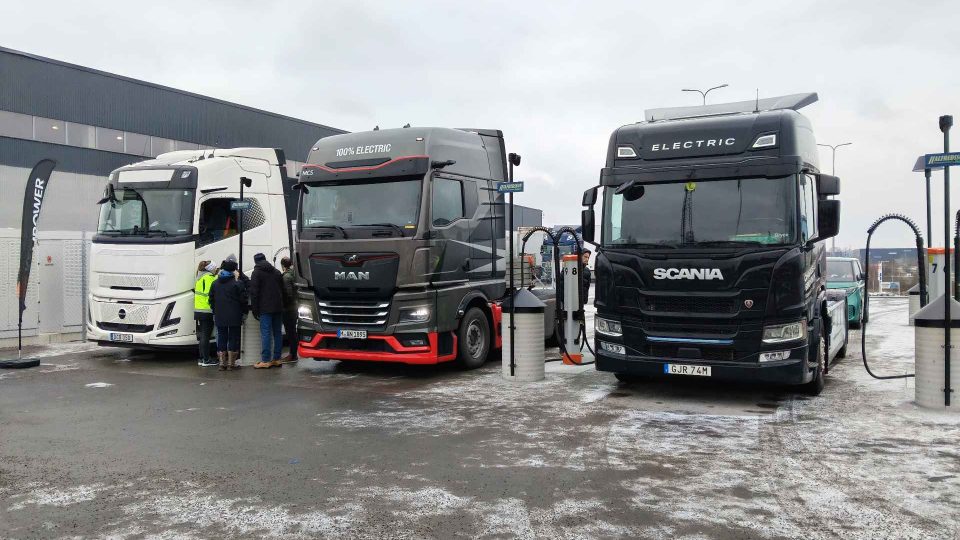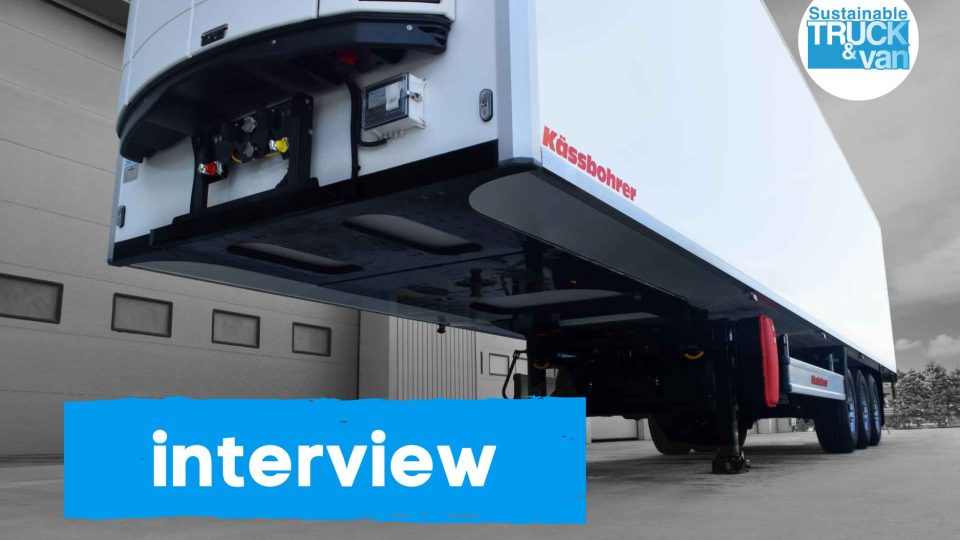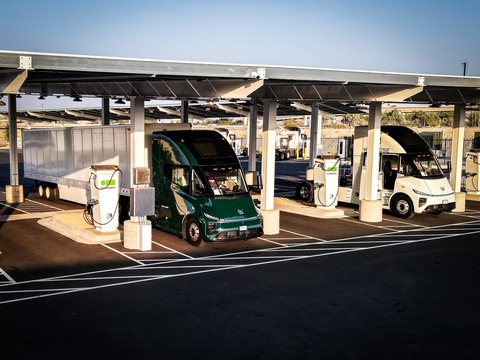Infrastructure, MAN presenting the results of the NEFTON project: charging power up to 3MW
For the first time ever, an electric truck publicly charged its batteries with over 1000 kilowatts and 1500 amps in Bavaria. Enough to give the 40-tonne long-distance eTruck from MAN a driving range of around 400 kilometres in 30 minutes.
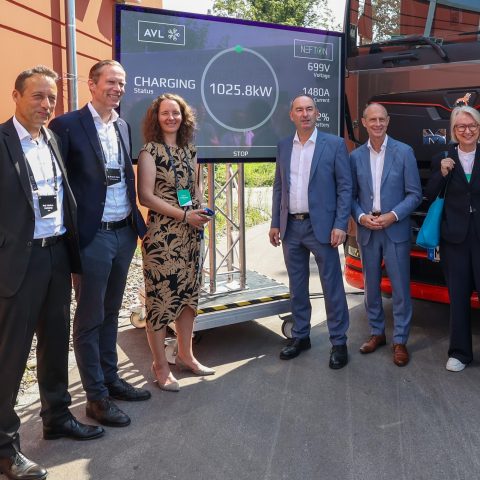
MAN Truck & Bus is one of the partners, along with some major technical universities and international organizations, of the so-called NEFTON charging infrastructure research project (here’s our post explaining what is the project).
Now, for the first time ever, an electric truck publicly charged its batteries with over 1000 kilowatts and 1500 amps in Bavaria. Enough to give the 40-tonne long-distance eTruck from MAN a driving range of around 400 kilometres in 30 minutes. The German project is funded by the German Federal Ministry for Economic Affairs and Climate Protection, MAN Truck & Bus and the Technical University of Munich (TUM) as well as five other partners from science and industry analysed the system consisting of an all-electric truck, charging station and grid connection and designed it for various application scenarios.
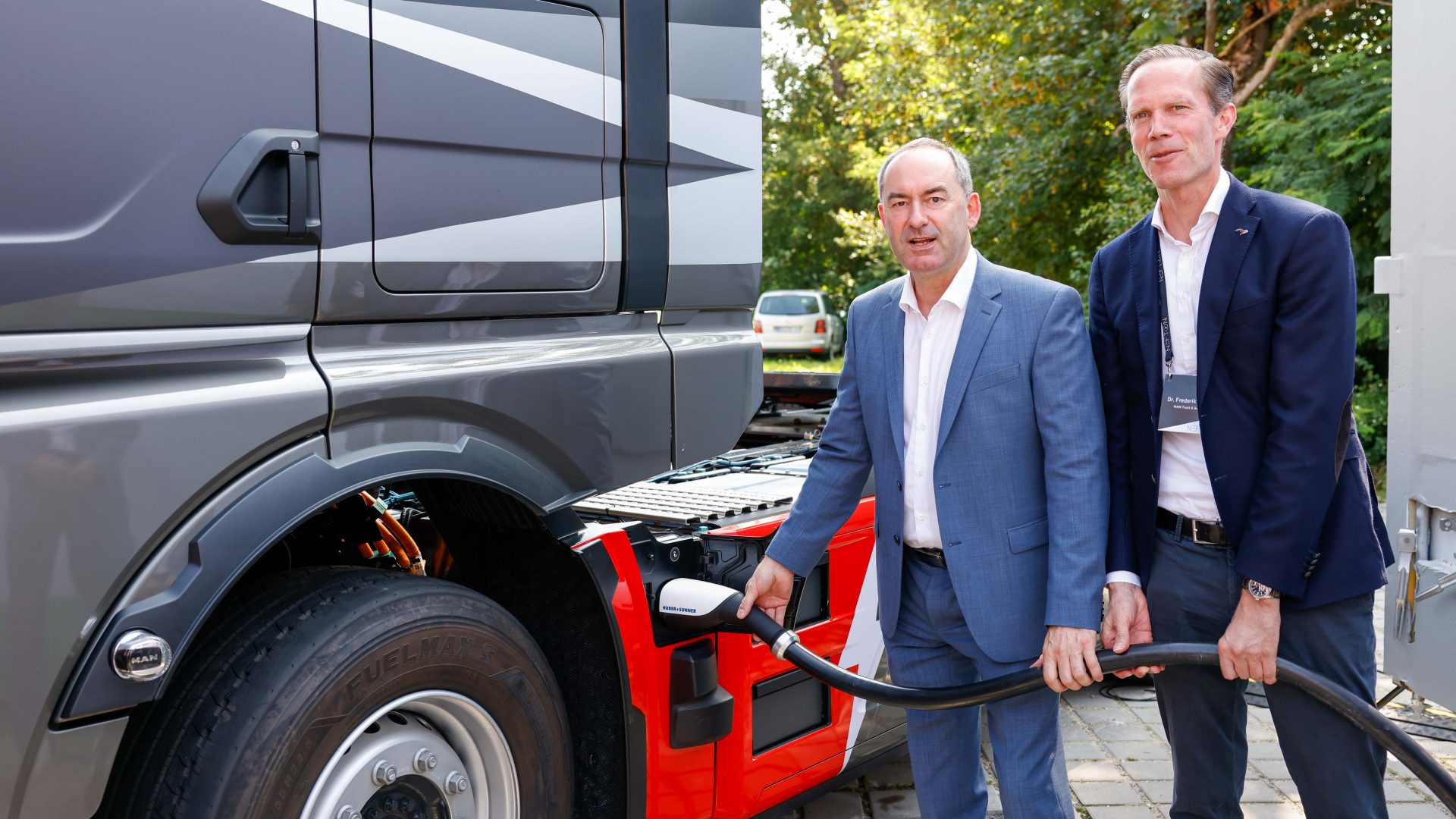
The NEFTON project highlights the importance of public fast-charging hubs
Based on the analysis of real-life deployment scenarios from four haulage companies, NEFTON’s research results clearly show the importance of public fast-charging infrastructure for the sustainable drive transition. While it is already possible to electrify transport in regional and distribution operations using the logistics centres’ own charging infrastructure, an effective conversion of long-distance transport requires fast-charging stations with up to one megawatt of charging power every 50 km along the core routes of the motorway network. Charging capacities of up to 3000 kW, as NEFTON has also investigated, can even increase the efficiency and flexibility of electric trucks for long-distance transport use in the future.
NEFTON has also already looked at bidirectional charging for possible integration of the truck as a storage unit in the power grid for more efficient utilisation of the electricity supply during the day. According to industry estimates, around 50,000 high-performance and megawatt charging stations will be needed by 2030 in order to sustainably drive forward the mobility transition for trucks in Europe. Nevertheless, Fraunhofer ISI and Amazon have recently published a study, according to which nearly 1,000 megawatt charging hubs will be enough in Europe to supply charging power for long-haul electric trucks in Europe by 2030.




